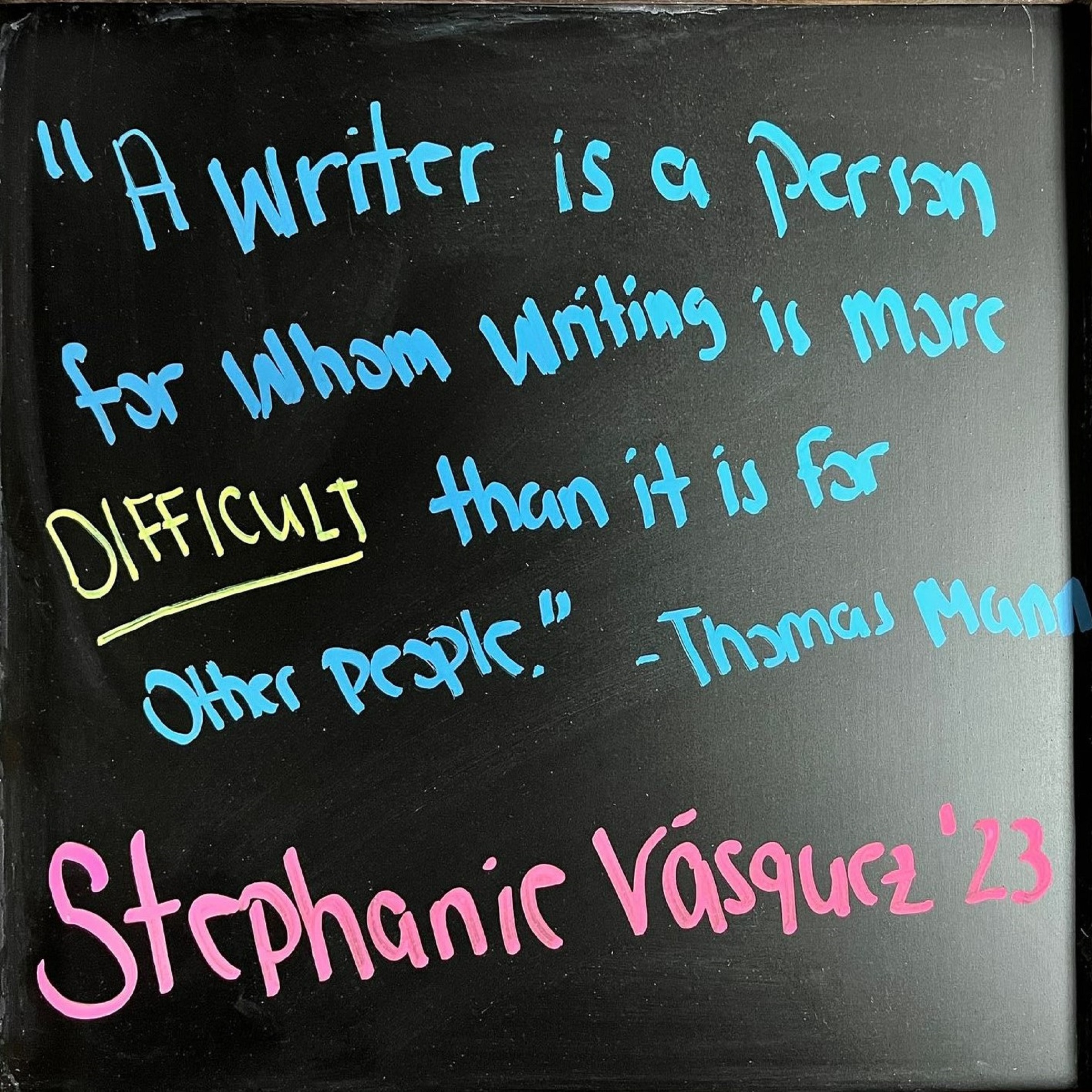- Philosophy papers are not reports, or research papers, or reflection papers. Generally, they ask students to use their reasoning skills to defend a particular idea or test the validity of an argument. Considering that, look at the prompt. Does your instructor want you to apply a philosophical argument to a new situation? Does the prompt ask you to amend an existing argument? Or object to an argument? Read the prompt closely and take a look at these frequently used tasks to better understand the prompt.
- Choose a stance to argue for or against. Do not choose both sides or neither side. Playing the middle-ground can be much more difficult and might require a longer paper.
- Have a precise thesis statement that defines your stance, how you will prove your stance, and why your stance should matter to your reader. Check out some adaptable thesis templates here.
- Define any abstract terms, concepts, or perspectives before you dive into your draft. Have the definitions accessible so you can use them correctly to support your reasoning. Make sure you are using philosophical terms correctly. Here’s a brief guide with frequent concepts. Here is a guide with vocabulary to help you describe arguments as you analyze them.
- Make a detailed outline before you start writing. When dealing with abstract concepts, it’s easy to go on tangents or lose focus. One possible way to approach these papers is to use the They Say/I Say method, which is further explained here. Another point-by-point method of organization is here.
- Use your instructor’s office hours once you have a detailed outline to make sure you are on track for success.
- Write a brief introduction. Be concise and respond directly to the main question within the prompt.
- Don’t use too many direct quotes. Remember, philosophy instructors generally want to see your reasoning skills, not your summary skills. Select and integrate material from others that best illustrates or supports your idea. Don’t let them overshadow your ideas.
- Communicate your stance and thought process clearly. Avoid all vague words (a lot, stuff, things) and empty language (basically, just, great, fine) unnecessary adverbs (really, very, importantly) that can distract your reader. Make sure you are choosing the most appropriate words.
-
-
- Use examples and illustrations to demonstrate your thoughts.
- Use transitions and signposts to indicate how ideas relate to each other.
- It’s wise to have a peer review your argument to make sure it’s clear with no gaps in your logic.
-
- Be confident—don’t preface your ideas behind phrases like “In my opinion,” “I believe,” or “For me at least,” because it discredits your argument.
Other Resources
| Student Sample Papers | An Annotated Student Sample Paper |
| Common Issues in Philosophy Papers | Examples of What Not To Do |
| Strong Writing vs. Poor Writing
in Philosophy Papers |
Examples of Student Writing |













Leave a Reply